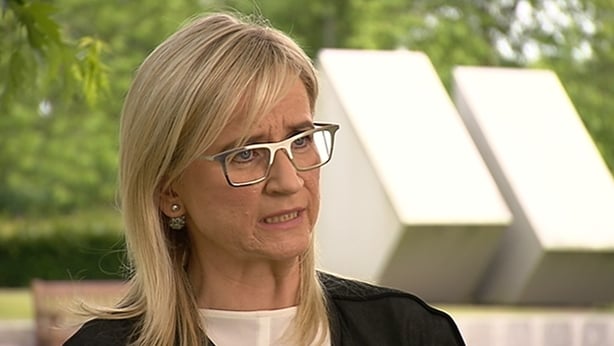RTÉ made a net surplus of €2.4m in 2021, compared to a net surplus of €7.9m in 2020.
Releasing its annual report today, the broadcaster said that growth in commercial revenue and a decline in the TV licence fee, along with the broadcast of special events in another year impacted by the pandemic contributed to what it described as a "modest surplus".
Total revenue, which is made up of both the TV licence and commercial revenue, increased by €13.3m between 2020 and 2021.
TV licence sales were lower in 2021 and RTÉ's licence fee revenue in 2021 was €0.5 million lower than 2020.
Commercial revenue increased by €13.8m to €148.3m from €134.5m, in particular due to the recovery of TV trading, which benefitted in the second half of the year from a significant increase in client spending.
Operating costs, excluding special events, increased by €10.3m compared to 2020, as content production resumed after severe disruption in 2020 due to the pandemic.
The cost of special events in 2021, including Euro 2020, Olympics and World Cup qualifiers amounted to €15.8m
The annual report also highlights that RTÉ was home to 44 of the 50 most-watched TV programmes in Ireland last year.
The Late Late Toy Show was again the most-watched programme on television, with over 1.7 million viewers and €6.6 million raised for good causes.
RTÉ.ie extended its position as the number 1 news and entertainment website in Ireland, with 39 million monthly visits and 98 million monthly page views.
RTÉ reached almost 2 million radio listeners in Ireland, with 48% of the adult 15+ population tuning in every week.

RTÉ's Director-General Dee Forbes said that while 2021 was different to 2020, many of the challenges remained.
"However, across the year and across our services, RTÉ created work of high public value in news, investigative reporting, arts and cultural experiences, live sport, original drama, entertainment and children's programming," Ms Forbes said.
Last week, the Government announced that it is to maintain the current TV licence, but said it would overhaul the system to ensure it is more equitable, relevant and sustainable.
The announcement was made at the publication of the report of the Future of Media Commission, which recommended replacing the licence fee with exchequer funding.
"The decision by Government last week to align the obligation to pay the TV licence with how people consume media today is critical to ensure the sustainability of the system into the future," Ms Forbes said.
"As I said last Tuesday, RTÉ will continue to do everything in its power to deliver a national public service media to be proud; but implementing essential Licence Fee reform is vital to address persistent financial instability," she added.
Moya Doherty, Chair of the RTÉ Board, said that as Ireland's national public service broadcaster, RTÉ must be able to articulate and represent the social, cultural and economic realities of its citizens while defending democratic process when it is under challenge, adding that it can only do that if it has assured and independent funding mechanisms in place.
"While the Government decision to move to link the licence fee to how media is now consumed is welcome, how that is implemented and how quickly is more critical than ever," Ms Doherty said.







